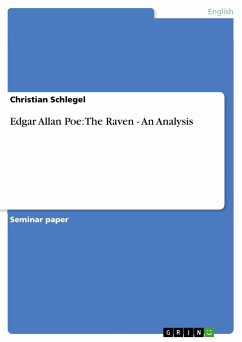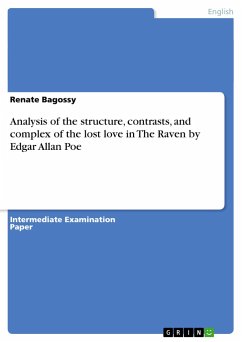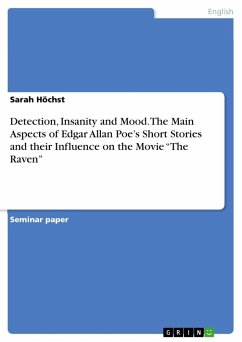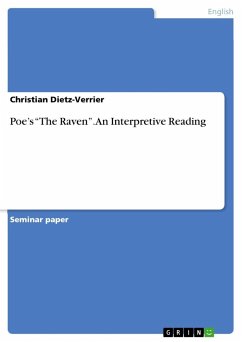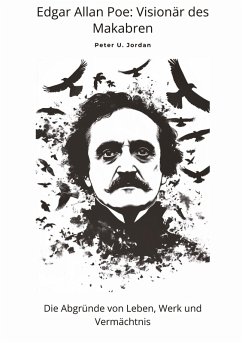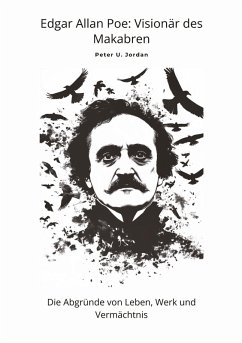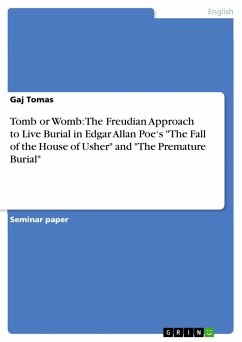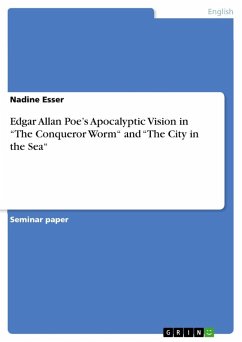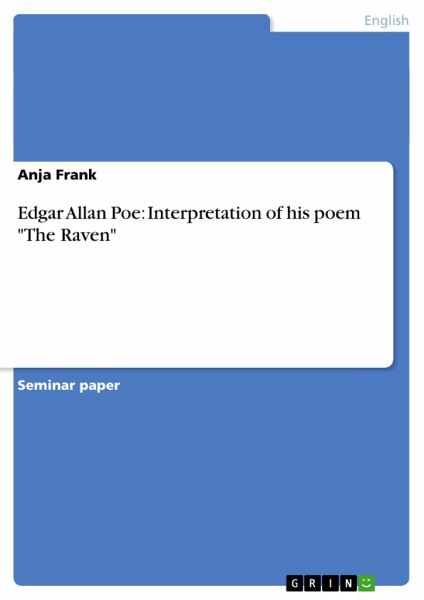
Edgar Allan Poe: Interpretation of his poem "The Raven"

PAYBACK Punkte
0 °P sammeln!
Seminar paper from the year 2006 in the subject American Studies - Literature, grade: 1,2, Ernst Moritz Arndt University of Greifswald (Anglistik/ Amerikanistik), course: Proseminar: American Poetry, language: English, abstract: The power of literature is a great one indeed. It absorbs us, transforms our environment, changes our way of thinking. For a moment we are able to live another life, try different opportunities and imagine fantastic worlds. Especially poems seem to touch us within our deepest soul. A poem can often say things that might never be said in any other way. It gives us goose...
Seminar paper from the year 2006 in the subject American Studies - Literature, grade: 1,2, Ernst Moritz Arndt University of Greifswald (Anglistik/ Amerikanistik), course: Proseminar: American Poetry, language: English, abstract: The power of literature is a great one indeed. It absorbs us, transforms our environment, changes our way of thinking. For a moment we are able to live another life, try different opportunities and imagine fantastic worlds. Especially poems seem to touch us within our deepest soul. A poem can often say things that might never be said in any other way. It gives us goose bumps and butterflies in our stomach; it makes us cry, makes us laugh, makes us feel better- makes us think. Poetry expresses not only love, or disgust, but also giddy elation, mild bemusement, wild imagination and any other feelings we can or cannot imagine. Throughout the years many authors have expressed their opinions, hopes and critics in magazines, in books filled with pages and pagesof poetry. Nevertheless some of them clearly stand out with their life and their work. Some of them are authors that made great contributions to the world of literature and that are still unforgotten. One of them is Edgar Allan Poe. Edgar Allan Poe did not only have a great influence on the development of horror and fantasy genres, he also stands (with Mary Shelley) for a new strain in literary Romanticism, later called Gothic. Poe is known as the father of the American short story and the detective story, but furthermore he wrote wonderful pieces of poetry. (Magistrale 2001: xiii) Tony Magistrale writes in his book "Student Companion to Edgar Allan Poe": "Poe was one of those rare literary geniuses who not only labored successfully in multiple genres- poetry, fiction, the essay- but also went on to contribute significantly to defining and exploring the fullest range of possibilities inherent in these genres." (Magistrale 2001: xii) One of his most famous poems that spread out through the world and got translated into many languages is "The Raven". This essay offers a summary and an interpretation of "The Raven" and tries to respect Poe's own analysis in "The Philosophy of Composition". Nevertheless, when reading or analyzing a poem it is always profitable to read about the life of the poet, too. Some of his biographical facts may be the link to understand his way of writing. That's why this essay also deals with Edgar Allan Poe's life and the time he grew up.




